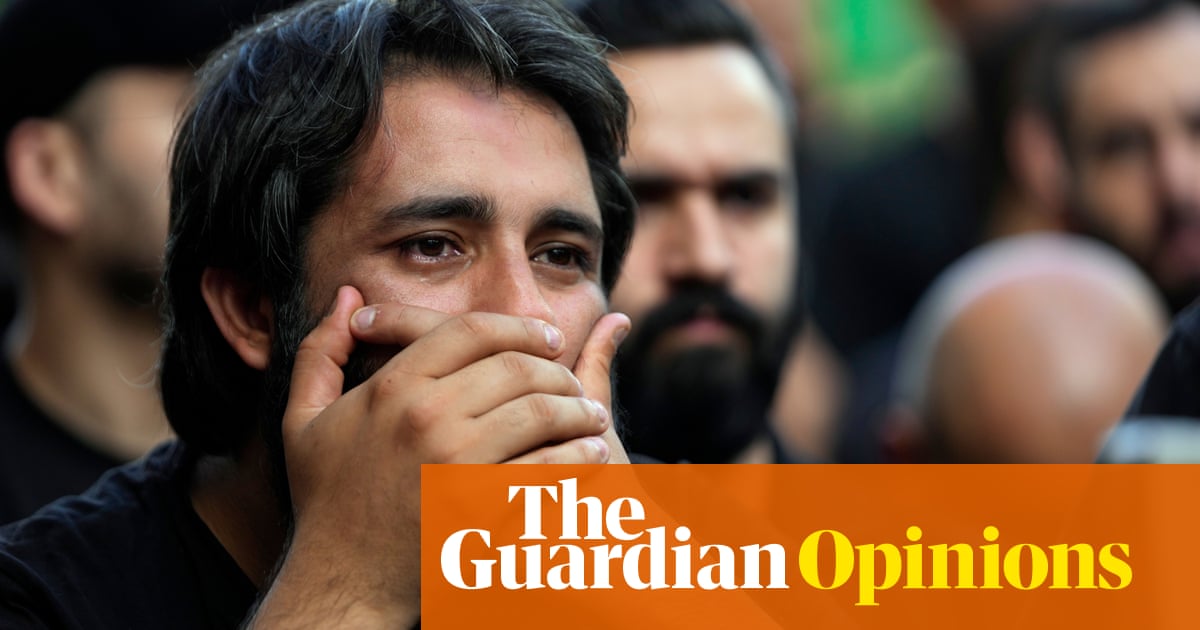By Tuesday afternoon, the wails of Beirut – of the country – could be heard not only from its rooftops and balconies but also from its kitchens and living rooms, from its hospitals and coffee houses, from its grocery stores and barber shops, from its cars and pavements. The sirens of ambulances echoed through the city’s streets. Emergency vehicles sped past terrorised pedestrians who were caught between calling their loved ones and discarding their electronic devices altogether. One of the first messages I received from a well-meaning friend was a plea to “stay away from your phone”. She had presumably used her phone to send it, and I had used mine to read it. “You too,” I texted back.
About 4,000 pagers, and a large number of electronic devices, belonging to Hezbollah members were detonated by Israel in civilian and public spaces across Lebanon on Tuesday and Wednesday. The attacks killed 37 people, among them two children, and wounded about 3,000 people. Security sources, according to Reuters, confirmed that Israel was responsible for the attacks, though Israeli officials have yet to comment. As for the mechanism, speculation abounds. Analysts suspect supply-chain tampering or manipulation of the devices before they reached Hezbollah’s hands.
It was not purely the scale of the attack – substantial though it was – that caused shock and disbelief among the Lebanese, but the pervasiveness of it. Doctors tossed away their pagers, wedding planners dispensed with their walkie-talkies, and parents disconnected their baby monitors. Misinformation soon followed the explosions. Wifi routers, it was erroneously claimed, presented an immediate danger. In our living rooms, in our pockets, on our wrists, now sat intimate timebombs capable of ending or upending a life. The thought had occurred to me as I swiped away messages of concern from friends and family to read reports of exploding pagers.
I looked up from my phone in the chaos of the aftermath to see Lebanese men and women caressing their screens with their cheeks, serenading them, whispering sweet words of endearment into them: “Habibti mama, stay vigilant” or “God protect you, go home, I’ll meet you there.” Words that were meant for partners, parents, children, had been swallowed whole by ostensible instruments of war.
A large proportion of the injuries were facial and resulted in partial or total loss of vision. Dr Elias Warrak, an ophthalmologist at Mount Lebanon University hospital, stated that in 25 years of practice, he had “never removed as many eyes” as he had been obliged to do on Tuesday. Hospitals around the country, but especially in the southern suburbs of Beirut and the south of Lebanon, were overwhelmed as they struggled to keep up with the sheer volume of victims who required urgent attention. Still, by Thursday blood donors were being turned away from hospitals. Enough blood had been taken for the time being.
In recent years, Lebanon has seen more than its fair share of devastation: from the Beirut port explosion in 2020, which ripped through the city, killing 218 people and injuring thousands, to the continuing economic crisis, which has seen the collapse of the local currency, with countless Lebanese losing their savings, their pensions or their jobs due to the corruption and negligence of the country’s ruling elite (of which Hezbollah is a pivotal component). Over the past 11 months, Hezbollah and Israel have exchanged fire, with the south of Lebanon bearing the brunt of the latter’s attacks on this side of the border.
If the aim of the attack was to spread fear and panic in the streets of Lebanon, then it succeeded. I saw the terror in the eyes of ordinary people who had recognised it in the eyes of others, who feared for their own lives and those of their loved ones. The indiscriminate detonation of explosive devices in public spaces resulted in the killing and maiming of innocent bystanders and children. The method may have been hi-tech, “audacious” and “unprecedented”, but the outcome is all too familiar, old-fashioned and on-brand for a state that is being investigated by the international court of justice (ICC) for a “plausible” genocide in Gaza.
Not long after the second wave of explosions, I approached a parking attendant to retrieve the keys to my father’s crumbling 96 Mercedes model. As I reached for change, I felt my mother’s hands pulling at my elbow. With an unpractised smile, the attendant assured her that he was not carrying a pager. He then asked whether I was in the habit of carrying one myself and concluded, before I could respond, that we would not still be having this conversation if I was. I placed 300,000 lira (£2.50) in the palm of his hand. “May you be compensated,” he said, as he tossed me the keys and collapsed back into his white plastic chair.
-
Do you have an opinion on the issues raised in this article? If you would like to submit a response of up to 300 words by email to be considered for publication in our letters section, please click here.

